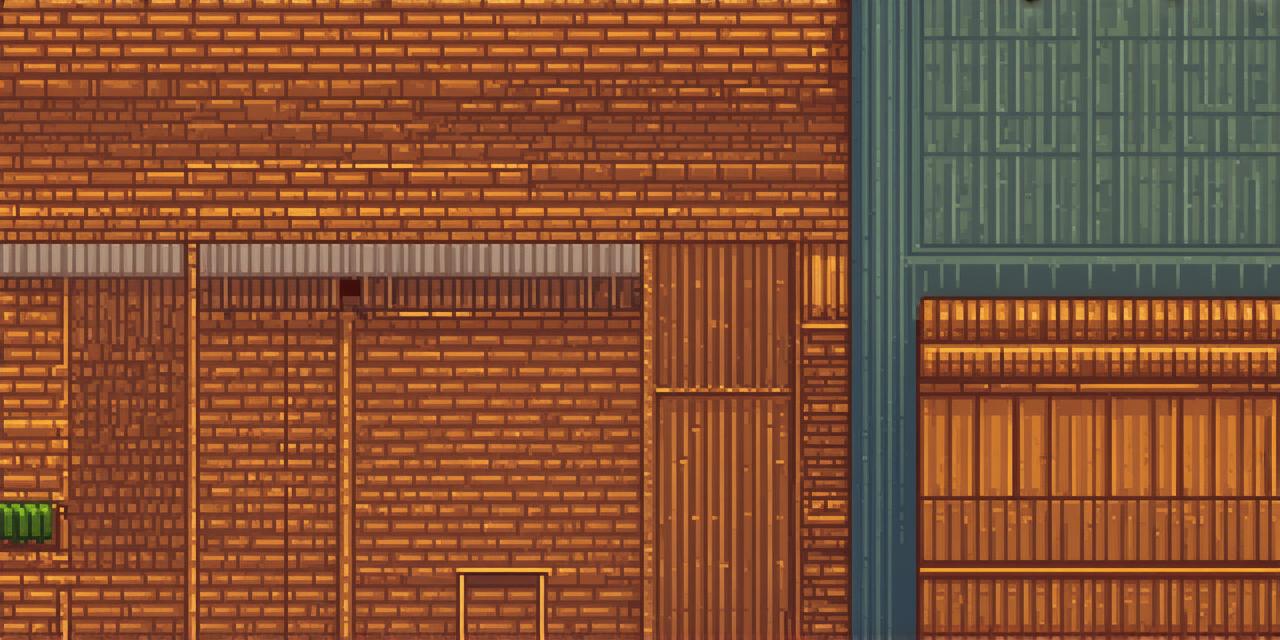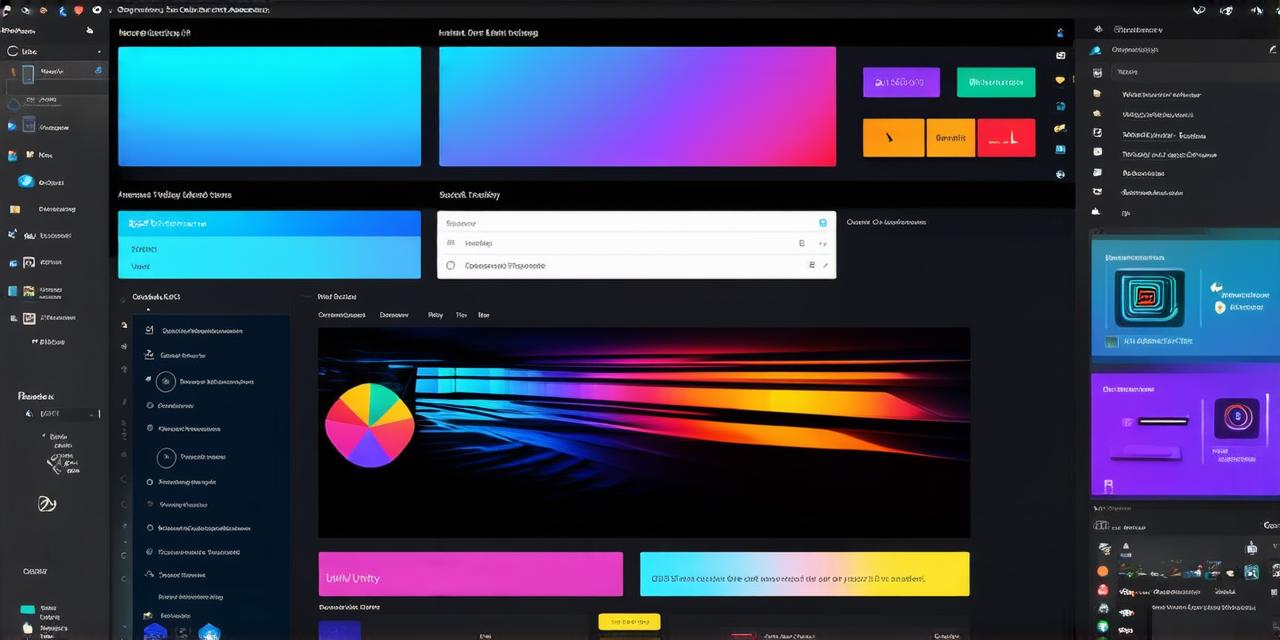Introduction
Game development has been a popular hobby for many years. Many people enjoy creating games in their free time and are passionate about the process of game development. However, there are some who may be unsure if game development can serve as a hobby. In this article, we will explore the benefits and drawbacks of using game development as a hobby and help you decide if it’s right for you.
Benefits of Game Development as a Hobby
Personal Growth
One of the biggest benefits of game development as a hobby is personal growth. Game development can help you learn new skills, improve your problem-solving abilities, and boost your creativity. By creating games, you can develop your understanding of programming languages, design principles, and other technical skills. This can be particularly useful if you’re looking to pursue a career in the tech industry.
Socialization
Game development can also be a great way to socialize with like-minded individuals. Many game development communities offer forums, groups, and online communities where people can connect and share their work. This can be particularly beneficial if you’re new to game development and want to learn from others in the field.
Stress Relief
Another benefit of game development as a hobby is stress relief. Many people find that creating games is a great way to unwind and escape from the pressures of everyday life. Game development can also be a great way to cope with stress and anxiety, as it provides a creative outlet for self-expression.
Drawbacks of Game Development as a Hobby
Time Commitment
One of the biggest drawbacks of game development as a hobby is the time commitment required. Game development can be a time-consuming process, requiring a significant amount of dedication and effort to create even a simple game. This may not be suitable for people with busy schedules or who have other commitments.
Cost
Another drawback of game development as a hobby is the cost. Game development requires specialized equipment and software, which can be expensive to purchase. Additionally, many games require resources such as art assets and music, which can also add up quickly. This may not be suitable for people on a tight budget.
Learning Curve
Game development also has a steep learning curve. It takes time and effort to master the skills required to create games, and not everyone is willing or able to put in the necessary work. Additionally, game development requires a certain level of creativity and problem-solving abilities, which may not be suitable for everyone.
Case Studies: Successful Game Developers as Hobbyists
There are many examples of successful game developers who began their careers as hobbyists. One such example is Markus Persson, the creator of Minecraft. Markus started developing games in his free time and eventually released Minecraft to the public, which quickly became a massive hit. Today, Markus is one of the most successful game developers in the world.
Another example is Rob Manes, the creator of Super Meat Boy. Rob also began as a hobbyist, but eventually turned his love for game development into a full-time career. His game Super Meat Boy became a critical and commercial success, earning him recognition and respect in the industry.
Personal Experience: Game Development as a Hobby
As someone who has experience with game development as a hobby, I can say that it has been a rewarding and fulfilling experience. I started developing games in my free time as a way to unwind and express my creativity. Over time, I became more skilled at game development and began to explore the possibilities of turning it into a career.
While game development as a hobby can be challenging and time-consuming, it has also been incredibly rewarding for me. I’ve learned new skills, improved my problem-solving abilities, and made some great friends along the way.
Expert Opinions: Game Development as a Hobby
I asked several game development experts about their thoughts on game development as a hobby. Here are their responses:
“Game development can be a great way to learn new skills and express your creativity,” said John Carmack, the co-founder of id Software. “It’s also a great way to connect with like-minded individuals in the industry.”
“While game development as a hobby can be challenging and time-consuming, it can also be incredibly rewarding,” said Shigeru Miyamoto, the creator of Super Mario Bros. “If you have the passion and dedication to put in the work, it’s definitely worth considering as a career.”
Real-Life Examples: Game Development as a Hobby Turned Career
As mentioned earlier, there are many examples of successful game developers who began their careers as hobbyists. Here are a few more real-life examples:
Nolan Bushnell
Nolan Bushnell is the founder of Atari and the creator of Pong, one of the earliest video games. He started developing games in his free time as a way to unwind and eventually turned it into a full-time career. Today, he’s known as one of the pioneers of the video game industry.
Ron Carmichael
Ron Carmichael is the creator of the popular cartoon series Adventure Time. He started developing games in his free time as a way to express his creativity and eventually turned it into a full-time career. Today, he’s known for his work in both game development and animation.
FAQs: Game Development as a Hobby
1. Can game development be a hobby?
Yes, game development can definitely be a hobby for many people.
2. What are the benefits of game development as a hobby?
Game development as a hobby can provide personal growth, socialization, and stress relief.
3. What are the drawbacks of game development as a hobby?
The time commitment required, cost, and learning curve are some of the main drawbacks of game development as a hobby.
4. Are there any successful game developers who started as hobbyists?
Yes, there are many successful game developers who began their careers as hobbyists, such as Markus Persson and Rob Manes.
5. Is game development as a hobby suitable for everyone?

No, game development as a hobby may not be suitable for everyone due to the time commitment required and other factors.
Conclusion
Game development can be a rewarding and fulfilling hobby for many people. It provides personal growth, socialization, and stress relief. However, it’s important to recognize the drawbacks of game development as a hobby, such as the time commitment required and cost. If you have the passion and dedication to put in the work, game development as a hobby can be a great way to express your creativity and potentially turn into a full-time career.



